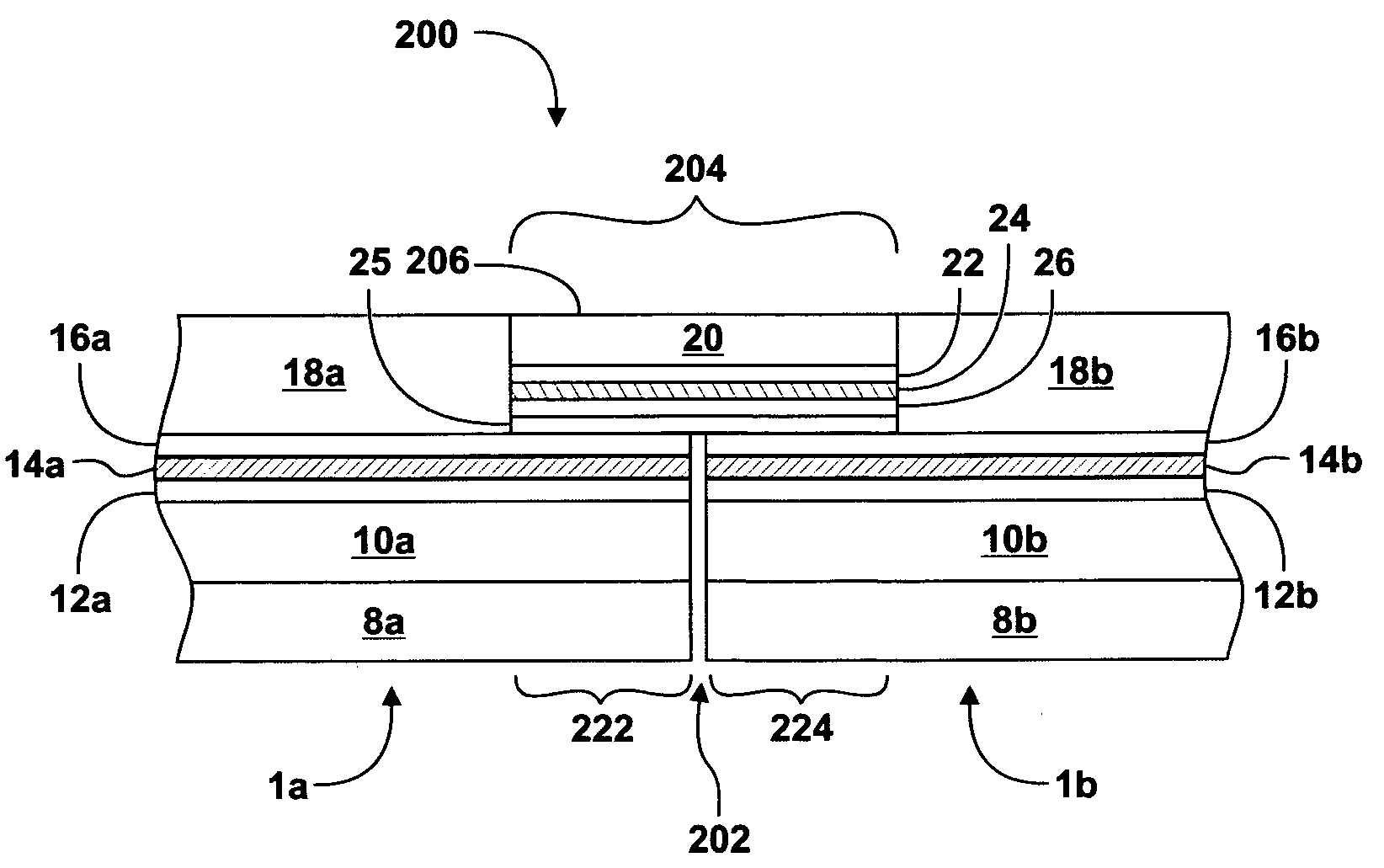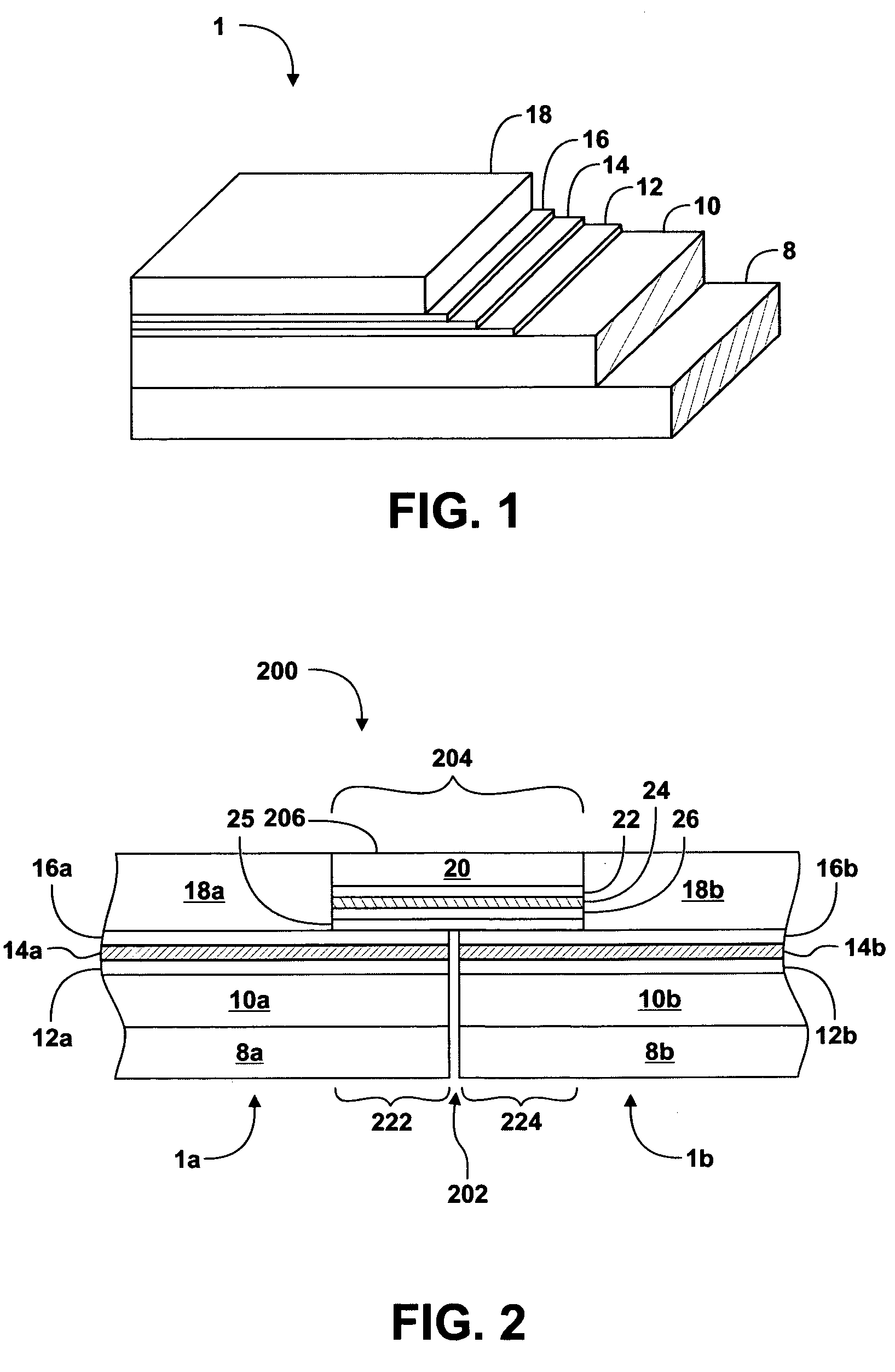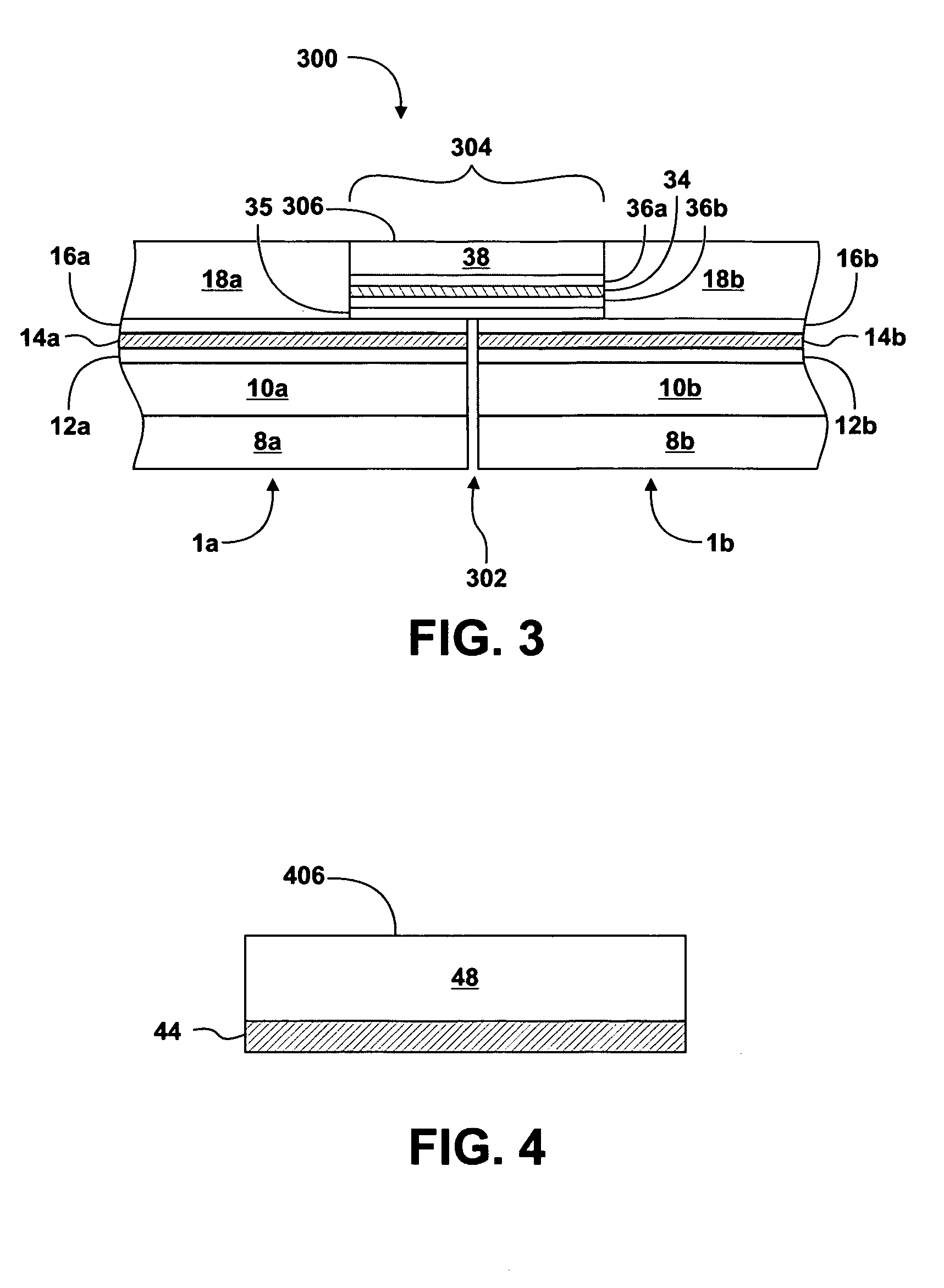Joined superconductive articles
a superconductive and joint technology, applied in the direction of superconducting magnets/coils, magnetic bodies, non-metal conductors, etc., can solve the problems of numerous engineering and manufacturing challenges, tapes do not represent a commercially feasible product, and continue to exis
- Summary
- Abstract
- Description
- Claims
- Application Information
AI Technical Summary
Benefits of technology
Problems solved by technology
Method used
Image
Examples
Embodiment Construction
[0023]Turning to FIG. 1, the generalized layered structure of a superconductive article according to an embodiment of the present invention is depicted. The superconductive article includes a substrate 10, a buffer layer 12 overlying the substrate 10, a superconductive layer 14, followed by a capping layer 16, typically a noble metal layer, and a stabilizer layer 18, typically a non-noble metal such as copper.
[0024]The substrate 10 is generally metal-based, and typically, an alloy of at least two metallic elements. Particularly suitable substrate materials include nickel-based metal alloys such as the known Inconel® group of alloys. The Inconel® alloys tend to have desirable creep, chemical and mechanical properties, including coefficient of expansion, tensile strength, yield strength, and elongation. These metals are generally commercially available in the form of spooled tapes, particularly suitable for superconductive tape fabrication, which typically will utilize reel-to-reel ta...
PUM
 Login to View More
Login to View More Abstract
Description
Claims
Application Information
 Login to View More
Login to View More - R&D
- Intellectual Property
- Life Sciences
- Materials
- Tech Scout
- Unparalleled Data Quality
- Higher Quality Content
- 60% Fewer Hallucinations
Browse by: Latest US Patents, China's latest patents, Technical Efficacy Thesaurus, Application Domain, Technology Topic, Popular Technical Reports.
© 2025 PatSnap. All rights reserved.Legal|Privacy policy|Modern Slavery Act Transparency Statement|Sitemap|About US| Contact US: help@patsnap.com



